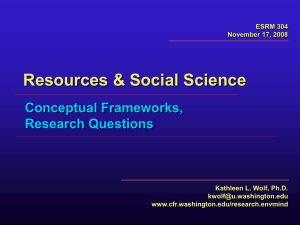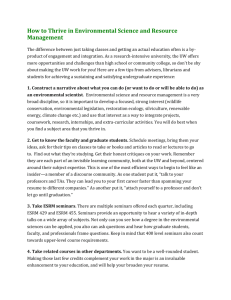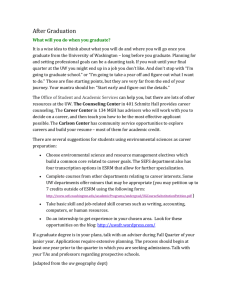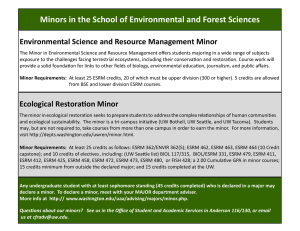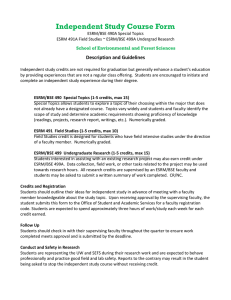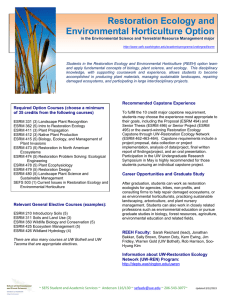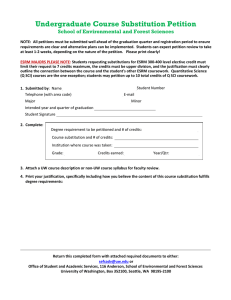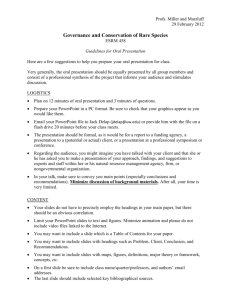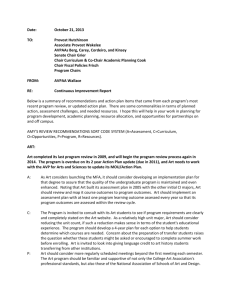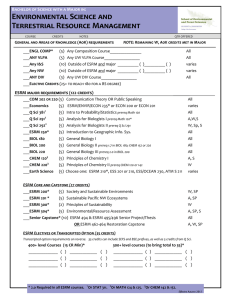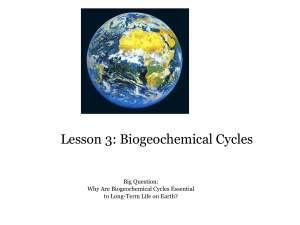Landscape Ecology and Conservation Option
advertisement
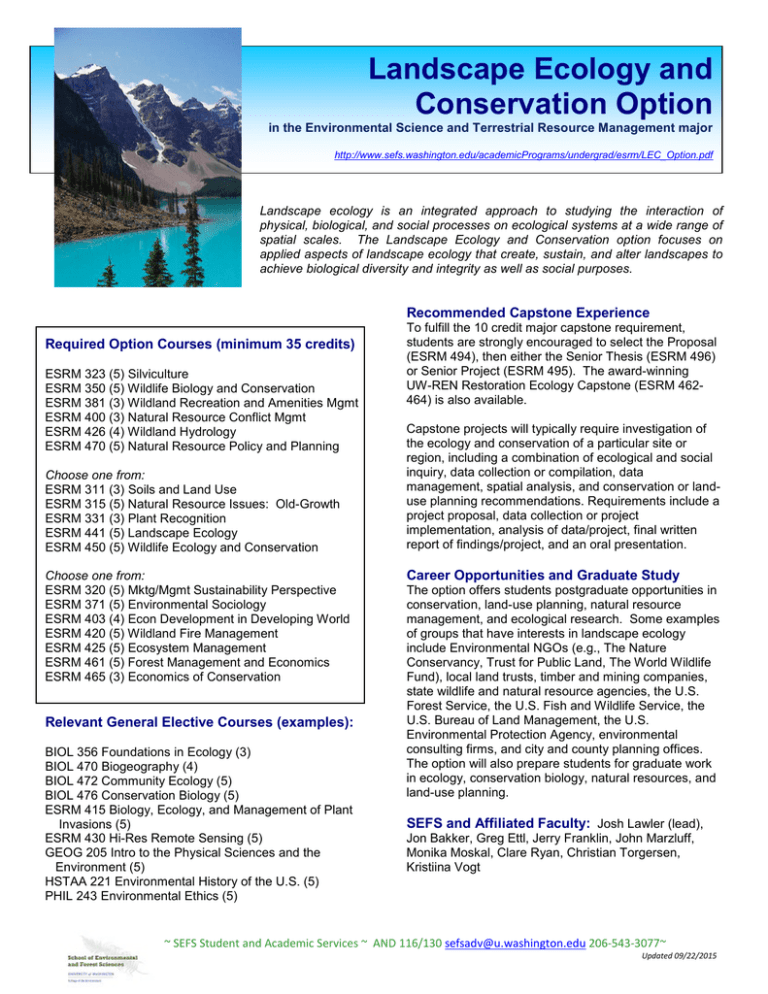
Landscape Ecology and Conservation Option in the Environmental Science and Terrestrial Resource Management major http://www.sefs.washington.edu/academicPrograms/undergrad/esrm/LEC_Option.pdf Landscape ecology is an integrated approach to studying the interaction of physical, biological, and social processes on ecological systems at a wide range of spatial scales. The Landscape Ecology and Conservation option focuses on applied aspects of landscape ecology that create, sustain, and alter landscapes to achieve biological diversity and integrity as well as social purposes. Recommended Capstone Experience Required Option Courses (minimum 35 credits) ESRM 323 (5) Silviculture ESRM 350 (5) Wildlife Biology and Conservation ESRM 381 (3) Wildland Recreation and Amenities Mgmt ESRM 400 (3) Natural Resource Conflict Mgmt ESRM 426 (4) Wildland Hydrology ESRM 470 (5) Natural Resource Policy and Planning Choose one from: ESRM 311 (3) Soils and Land Use ESRM 315 (5) Natural Resource Issues: Old-Growth ESRM 331 (3) Plant Recognition ESRM 441 (5) Landscape Ecology ESRM 450 (5) Wildlife Ecology and Conservation Choose one from: ESRM 320 (5) Mktg/Mgmt Sustainability Perspective ESRM 371 (5) Environmental Sociology ESRM 403 (4) Econ Development in Developing World ESRM 420 (5) Wildland Fire Management ESRM 425 (5) Ecosystem Management ESRM 461 (5) Forest Management and Economics ESRM 465 (3) Economics of Conservation Relevant General Elective Courses (examples): BIOL 356 Foundations in Ecology (3) BIOL 470 Biogeography (4) BIOL 472 Community Ecology (5) BIOL 476 Conservation Biology (5) ESRM 415 Biology, Ecology, and Management of Plant Invasions (5) ESRM 430 Hi-Res Remote Sensing (5) GEOG 205 Intro to the Physical Sciences and the Environment (5) HSTAA 221 Environmental History of the U.S. (5) PHIL 243 Environmental Ethics (5) To fulfill the 10 credit major capstone requirement, students are strongly encouraged to select the Proposal (ESRM 494), then either the Senior Thesis (ESRM 496) or Senior Project (ESRM 495). The award-winning UW-REN Restoration Ecology Capstone (ESRM 462464) is also available. Capstone projects will typically require investigation of the ecology and conservation of a particular site or region, including a combination of ecological and social inquiry, data collection or compilation, data management, spatial analysis, and conservation or landuse planning recommendations. Requirements include a project proposal, data collection or project implementation, analysis of data/project, final written report of findings/project, and an oral presentation. Career Opportunities and Graduate Study The option offers students postgraduate opportunities in conservation, land-use planning, natural resource management, and ecological research. Some examples of groups that have interests in landscape ecology include Environmental NGOs (e.g., The Nature Conservancy, Trust for Public Land, The World Wildlife Fund), local land trusts, timber and mining companies, state wildlife and natural resource agencies, the U.S. Forest Service, the U.S. Fish and Wildlife Service, the U.S. Bureau of Land Management, the U.S. Environmental Protection Agency, environmental consulting firms, and city and county planning offices. The option will also prepare students for graduate work in ecology, conservation biology, natural resources, and land-use planning. SEFS and Affiliated Faculty: Josh Lawler (lead), Jon Bakker, Greg Ettl, Jerry Franklin, John Marzluff, Monika Moskal, Clare Ryan, Christian Torgersen, Kristiina Vogt ~ SEFS Student and Academic Services ~ AND 116/130 sefsadv@u.washington.edu 206-543-3077~ Updated 09/22/2015
